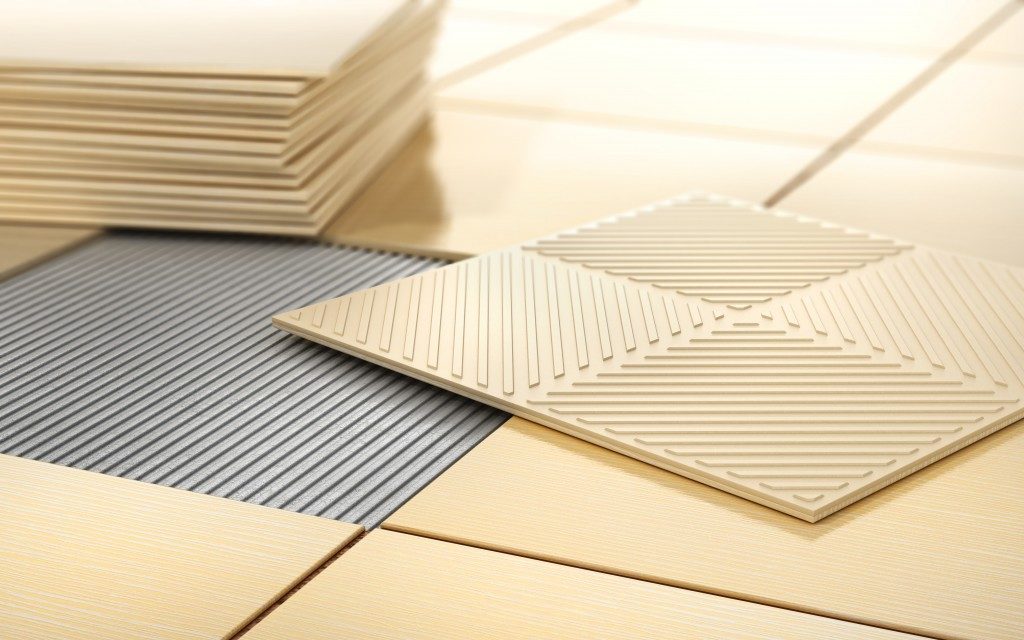Aside from your tiling skills and proper documents, you’ll need excellent tiling tools if you’re going to open a tiling business. Unlike what other new businesses do due to budget constraints, it’s best to invest in high-quality tools as early as now so that each of your clients from here on will be happy with your results. You can buy tile tools online or at a local shop, whatever suits you best. Buying online is just quicker and frees you of the task of driving (or sitting!) through the traffic. You can also enjoy amazing discounts on some online stores. Although this is not an exhaustive list, here are some tiling tools you’ll need for your new tiling business:
Tile Saws
Each material of tiles have different thickness and hardness, so you have to choose tile saws that can cut through many types of tiles. The standard tile saws have blades with 8 to 10 inches in diameter. An 8-inch blade usually has a maximum cutting depth of 2 inches, while a 10-inch blade can cut about 2.4 to 2.6 inches.
Manual Tile Cutters
These are a must-have if you want a portable cutter that doesn’t need electrical wires and doesn’t produce too much dust. Look for a cutter with double guides for easier scoring and cutting. A tool with different cutting measurements like 26”, 36”, or even 60” is also good to have.
Tile Levelling Systems
These often come in the form of kits that include a set number of wedges and clips. For a tiling business, it’s good to get systems that give as many wedges and clips, even hundreds. Make sure that your levelling systems are built for durability and precision.
Diamond Drill Bits
At one or another, you’re going to have to drill a hole in your tile. It’s best to get a diamond drill bit kit that allows wet cutting, which reduces the amount of noise and dust on the site. Drill bits with lateral openings also improve the cooling of the drill bit and make the installation faster and smoother overall.
Knee Pads
Tiling involves a lot of kneeling, and you don’t want your knees to darken or constantly be pressured. There are three general types of knee pads: hard-cap knee pads, curved soft caps, and flat-cap knee pads. Many tile installers prefer flat-cap pads when installing tiles because they contact the floor with the entire surface of the knee pad.
Waterproofing Membranes
These are not only for bathroom floors and tiles but also for other parts of the house where there is likely to be leakage. There are liquid waterproofing membranes that can be used for both crack isolation and waterproofing membrane. You can also get waterproofing sheet membranes that are very easy to install.
Grouting Tools

The three key grouting tools are the grout float, grout spreading bag, and grout removal tool like a scraper or blade. Some rubber grout floats are designed to spread grout over large areas, while some are designed to spread grout in hard-to-reach areas. It’s better to have both to make the installation process easier.
Tile Mortar Mixer
How long your installation lasts hugely depends on the mortar consistency. The right tile mortar mixer will help you get a strong bond that ensures a long-lasting installation. Make sure to get a mixer that can mix cement, paint, resins, adhesives, and many other materials.
Rubber Buckets
Getting a rubber bucket for your mortar will save you hours of painstaking cleaning. Rubber buckets are a lot easier to clean than plastic buckets even if the mortar is completely dry. Buy them in different sizes to suit your need in any situation.
There are a lot more tools out there that can make your life easier, but this list is a start. Make sure to buy your tools from reputable shops and research the best brands for each. After all, your installation can only be as good as your tools.

